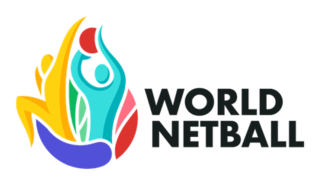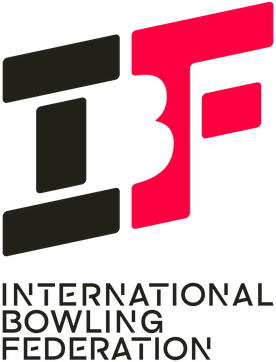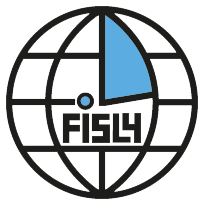Related Research Articles

Skat, historically Scat, is a three-player trick-taking card game of the ace–ten family, devised around 1810 in Altenburg in the Duchy of Saxe-Gotha-Altenburg. It is the national game of Germany and, along with Doppelkopf, it is the most popular card game in Germany and Silesia and one of the most popular in the rest of Poland. A variant of 19th-century Skat was once popular in the US. John McLeod considers it one of the best and most interesting card games for three players, and Kelbet described it as "the king of German card games." The German Skat Association assess that it is played by around 25 million Germans – more than play football.

The Fédération Internationale de l'Automobile is an international organisation with two primary functions surrounding use of the automobile. Its mobility division advocates the interests of motoring organisations, the automotive industry and motor car users in the fields of road safety and traffic circulation. The sport division is a governing body for many international motorsport championships and disciplines, including Formula One.
The Intercontinental Cup, officially the European/South American Cup and known as the Toyota Cup for sponsorship reasons, was an international football competition endorsed by UEFA (Europe) and CONMEBOL, contested between representative clubs from these confederations, usually the winners of the UEFA Champions League and the South American Copa Libertadores. It ran from 1960 to 2004, when it was succeeded by the FIFA Club World Championship, although they both ran concurrently in 2000.

The DFB-Pokal, also known as the German Cup in English, is a German knockout football cup competition held annually by the German Football Association (DFB). Sixty-four teams participate in the competition, including all clubs from the Bundesliga and the 2. Bundesliga along with the four best teams from the 3. Liga. It is considered the second-most important club title in German football after the Bundesliga championship. Taking place from August until May, the winner qualifies for the DFL-Supercup and the UEFA Europa League unless the winner already qualifies for the UEFA Champions League in the Bundesliga.

World Netball, previously known as the International Netball Federation and the International Federation of Netball Associations, is the worldwide governing body for Netball. The INF was created in 1960 and is responsible for world rankings, maintaining the rules for netball and organising the Netball World Cup and Netball at the Commonwealth Games

The International Volleyball Federation commonly known by the acronym FIVB. Is the international governing body for all forms of volleyball. Its headquarters are located in Lausanne, Switzerland, and its current president is Fabio Azevedo of Brazil.

Sportin Germany is an important part of German culture and their society. In 2006 about 28 million people were members of the more than 87.000 sport clubs in Germany. Almost all sports clubs are represented by the German Olympic Sports Federation.

International Bowling Federation (IBF), formerly known as the Fédération Internationale des Quilleurs (FIQ) from 1952 to April 2014 and as World Bowling (WB) from April 2014 to November 2020, is the world governing body of nine-pin and ten-pin bowling. IBF was founded in 1952 in Hamburg, Germany by officials of the International Bowling Association to grow worldwide interest in amateur ten-pin and nine-pin bowling, as well as international friendship by encouraging world and zone tournaments and other competition between bowlers of different countries. IBF has been recognized by the International Olympic Committee since 1979 as the governing body for bowling sports. Starting with five member federations in 1952, it grew to 141 in 2010. IBF has member federations located in all five Olympic regions.

The American Football Association of Germany is the governing body of the sport of American football in Germany and the German Football League.
AFL Europe is the regional governing body for Australian rules football in Europe. As of 2018, it organises the AFL Europe Championship and the Euro Cup, and previously managed the European Legion representative team as well being responsible for the organisation of the ANZAC Cup, Fitzpatrick Cup and AFL Europe Champions League.

Rugby Europe is the administrative body for rugby union in Europe. It was formed in 1999 to promote, develop, organise, and administer the game of rugby in Europe under the authority of World Rugby. However, it is not responsible for the organisation of the Six Nations Championship or the competitions run by European Professional Club Rugby.

German Rummy or Rommé is the most popular form of the worldwide game, Rummy, played in Austria and Germany. It is a game for 2 to 6 players and is played with two packs of French playing cards, each comprising 52 cards and 3 jokers. There are no partnerships. In Germany, the Germany Rummy Association is the umbrella organisation for local rummy clubs and organises national competitions. The game is often just known as Rommé in Germany and Rummy in Austria.
The German Equestrian Federation(Deutsche Reiterliche Vereinigung) is an umbrella organization in Germany for equestrian sports and breeding. It is the governing body for the majority of equestrian sports and their organization in Germany, including FEI-recognized disciplines of dressage, eventing, show jumping, vaulting, endurance, reining, para-equestrian, and driving. It also develops and enforces the rules for other events at horse shows. It is colloquially known as FN, short for the international term Fédération Équestre Nationale. The organisation runs the FNverlag, a publishing house for related books and other media
The German Skat Association or DSkV is the umbrella organisation for German Skat clubs. It was founded on 12 March 1899 in Halle an der Saale and the headquarters of the club is the Skat town of Altenburg. From 1954 to 2001, Bielefeld was the location of the Association's headquarters due to the division of Germany. The offices in Bielefeld were closed in 2005; since then, Altenburg has once again become the only head office location.
The World Skat Championship has been organised biannually since 1978 by the International Skat Players Association (ISPA) at various locations worldwide and is the highest level Skat competition in the world. It alternates with the European Skat Championship which has taken place biannually since 1979 and which ISPA also organises. In addition to the title of World Skat Champion, players compete for other titles: the Women's World Skat Champion, a Youth World Champion, a Veteran World Champion and a Veteran Women's World Champion.
The European Skat Championship has been held biennially since 1979 by the world Skat organisation, the International Skat Players Association (ISPA), at various locations. It alternates with the World Skat Championship which has also been run biennially since 1978 by the same association. In addition to the title of European Skat Champion there are awards for a European Women's Champion, a European Youth Champion, a European Veteran's Champion and a European Women Veteran's Champion.
The International Skat Court is the highest decision-making body in the sport of Skat. It oversees the observance of the International Skat Order, the refereeing regulations and the rules for referees in Skat. The International Skat Court was founded on 1 December 2001 by a merger of the German Skat Court, founded in Altenburg in 1927, with the Rules Commission of the International Skat Players Association. (ISPA). It took over on 1 January 2002 and its seat is in the Hotel am Roßplan in the centre of Altenburg.

The history of the game of Skat or Scat began in the early 19th century in Thuringia. The game spread rapidly within German-speaking Europe and also in the US and is now one of the most popular card games in Germany as well as being considered Germany's national card game.
Skat tournaments are known as Preisskats and are very common in Germany where Skat is mainly played. They are usually organised by Skat clubs or other local clubs.

The World Landsailing Organisation or Fédération Internationale de Sand et Landyachting (FISLY), is an international organisation which governs national associations of land sailing worldwide.
References
- ↑ "Deutsche Einzel- und Mannschaftsmeister der ISPA seit 1979". Archived from the original on December 31, 2016. Retrieved September 10, 2018.
- ↑ "Meisterschaften & Turniere im DSkV". Archived from the original on 2016-09-15. Retrieved 2018-09-10.